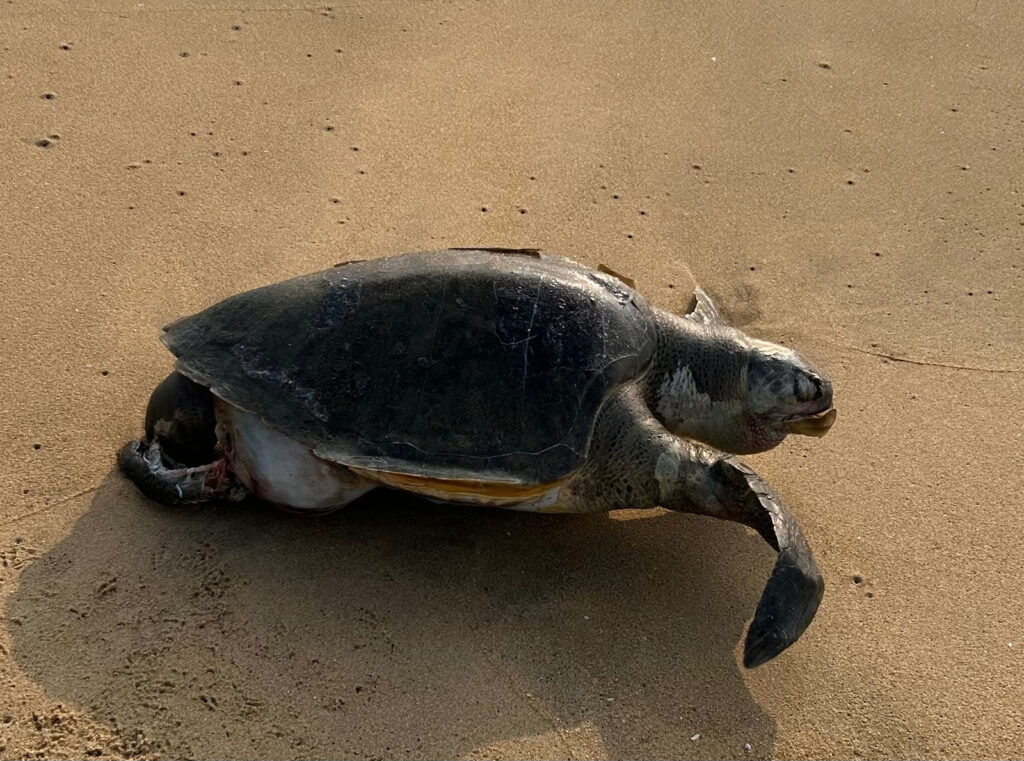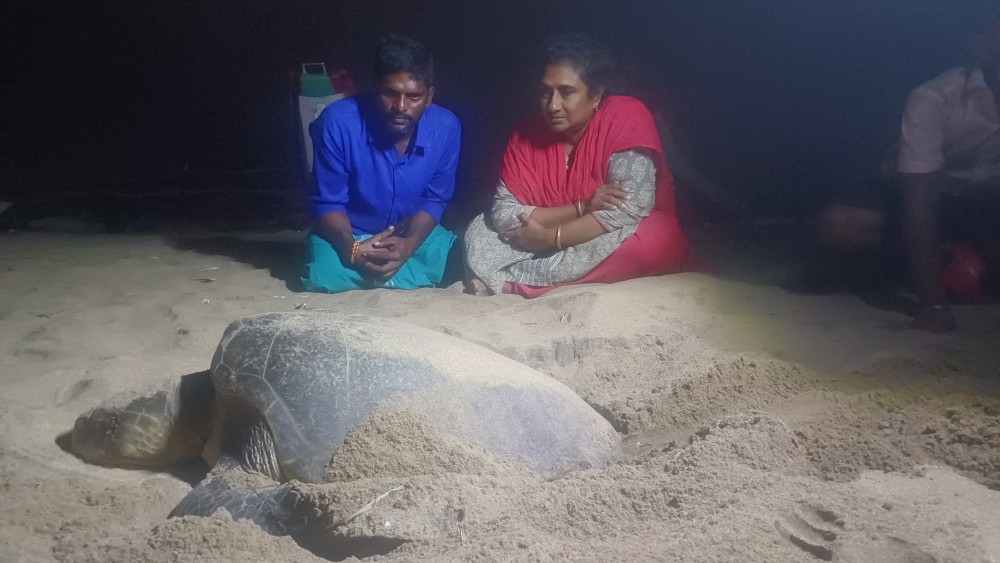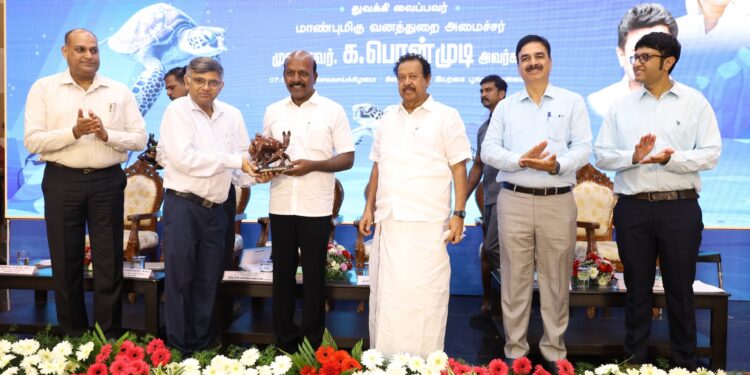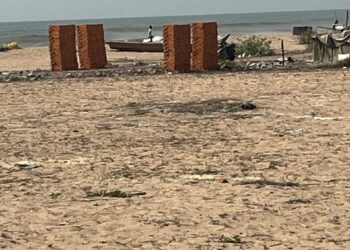In a significant step towards wildlife conservation, Tamil Nadu’s Minister of Health and Family Welfare, Ma Subramanian, and Minister for Forests, K. Ponmudi, launched the ‘Tamilnadu Turtle Guardian’ app, on Jan.7, at a turtle conservation workshop held at the Guindy Children’s Park.
Developed by the VGTS (Voluntary Group for Turtle Survival) in partnership with the Tamil Nadu Forest Department, the app focuses on the conservation of endangered Olive Ridley turtles that nest along the East coast of India between January and March.
The app is designed to empower forest rangers by enabling them to monitor egg collection, track hatching progress, and ensure the safe release of hatchlings into the sea. It also integrates a statewide data system to streamline volunteer coordination and promote community engagement. Highlighting the app’s significance, VGTS, on their social media platform, stated, “By combining technology with conservation efforts, the app plays a vital role in protecting Tamil Nadu’s coastal ecosystems. Together, we are shaping a sustainable future for these magnificent creatures and our planet. Let’s continue to make a difference—one hatchling at a time!”
The launch event was attended by Deputy Mayor M. Mahesh Kumar, IFS officers, and other key contributors, all of whom emphasised the importance of protecting the state’s fragile marine biodiversity. This initiative is expected to make a substantial impact on conserving Olive Ridley turtles and fostering environmental sustainability.
Olive Ridley Turtles found dead on Chennai Coast

beach. Photo courtesy: Ambika, Thiruvanmiyur.
Over the past 15 days, a significant number of endangered Olive Ridley turtles have been found dead along Chennai’s coastline, from Marina to Kovalam. Conservation groups, including the Students Sea Turtle Conservation Network (SSTN) and Tree Foundation, suggest the turtles likely drowned after getting entangled in fishing nets, especially squid nets laid offshore. Common symptoms include bulging eyes and swollen necks.
“Commercial fishing vessels use both trawl nets and gill nets. Turtles get caught in these nets and are unable to come up to breathe. Turtles have to surface every 40-45 minutes to breathe. When they get trapped in trawl nets or entangled in Gill nets they can not come to the surface and thus drown and die. When the nets are drawn, the dead turtles are thrown back into the sea and, from there wash ashore. This is truly heartbreaking. We are very sad,” explained Supraja Dharini from TREE Foundation.
She added, “The Tamil Nadu Marine Fisheries Regulation Act (TNMFRA) should be effectively enforced by the Fisheries Department to mandate that commercial fisheries, including trawlers, operate beyond 8 nautical miles from the shore. This regulation is crucial to safeguard artisanal fisheries, whose sustainable practices are also vital for protecting migratory sea turtles. The east coast serves as an essential migratory corridor for turtles travelling from the Gulf of Mannar to northern Tamil Nadu, Andhra Pradesh, and the nesting beaches of Odisha. What benefits artisanal fisheries ultimately benefits these migrating turtles, ensuring the coexistence of ecological conservation and traditional livelihoods.”
Nesting season starts

The launch of the app coincides with the start of the turtle nesting season. Supraja Dharini of TREE Foundation reported the first sighting of an Olive Ridley turtle coming ashore to nest at Panayur at 9:30 PM. The sighting has further energised efforts to protect these vulnerable marine creatures. To volunteer with TREE Foundation, contact 94443 06411, 2449 6411.
The Students Sea Turtle Conservation Network conducts turtle walks – an initiative aimed at raising awareness and involving the public in turtle conservation efforts. Those interested in participating can follow their page at https://sstcn.org.











